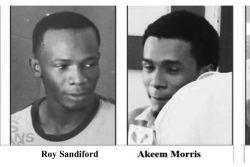Dear Editor,
Evidence is mounting that extra lessons are truly and deeply embedded in our educational system, and rightly so, except that only those who can afford to pay will reap the benefits. On the contrary, a problem exists and raises one key question. That question is, to what extent are we prepared to effectively implement a change in the current educational system so that the majority of our students can enhance their learning opportunities? I am not suggesting for a moment that much is wrong; however, there seems to be a case for extending learning opportunities by an extension of the school day – food for thought. Most of your contributors to these and other related issues, except for a few, seem to believe that extra lessons are solely responsible for students achieving excellent results, when this is not the case, despite being a contributory factor.
I recall one of your readers saying, “Even though we may desire ‘extra lessons’ for our children, travelling, social interaction, family vacations and other activities will ‘educate’ them much more at another level,” and that “formal education is fine but the ‘other’ activities in life help to build a more ‘rounded’ character and disposition” (‘Study support could improve educational outcomes’ SN, October 15).
Indeed, the answer lies in the above quote, but to achieve the proposition requires a well-paid job or a well-structured national initiative. If my interpretation is correct we have to offer other ways or new ways of inspiring our young people to learn and become educated. This requires a holistic approach involving the Ministry of Education and a range of multi-agencies from the public and private sectors. Pointing fingers and apportioning blame as to who did what 50 years ago is not an option. Doing nothing is also not an option unless those of us who can help to effect change would wish to continue this conversation 20 years down the line.
To explore new options and to savour old options reminds me that learning is essentially a social activity. We learn when we enjoy. We learn when our minds are challenged and piqued by curiosity. We learn when we laugh. We learn when we feel a sense of success and accomplishment. We do all these things in all sorts of places and the school is only one such place.
However, most of the experts exist in schools, which makes it their duty to provide young people with the tools to enable them to learn, to drive up self esteem, aspirations and expectations, and take their rightful places in society. However, schools and teachers cannot do this alone. It requires a multi-agency combination of skilled professionals working alongside the most committed, hardworking, diligent and skilful teachers that can create this climate of success. Evidence is also mounting that where and how youths spend their time outside of normal school hours has important implications for their development. On the positive side, young people benefit when they spend time engaged in structured pursuits that offer opportunities for positive interactions with adults and peers, encourage them to contribute and take initiatives, and which contain challenging and engaging tasks that help them develop and apply new skills and personal talent.
Let’s stop the talk now about extra lessons. It is here to stay as it is well and truly embedded in the system. An alternative as a starting point is to commission a study support programme as a pilot in one or two regions in the first instance; monitor and evaluate after a set period of time, and if successful, roll it out across all regions. I am optimistic that a nation of ‘well rounded characters and dispositions’ is waiting to emerge.
Yours faithfully,
Brendon Mounter
UK








